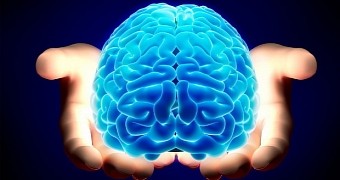As useful as body fat might be - and it really is - the fact of the matter is that packing too much of it can lead to severe medical complications, sometimes even put people in an early grave.
The thing is that, according to specialists at the Howard Hughes Medical Institute in the US, dieting isn't as simple as stepping away from the fridge and heading towards the nearest gym instead.
In a study, the researchers explain that it often happens that an individual's own brain sabotages their attempts to lose weight. More precisely, they say that a special class of neurons, i.e. AGRP neurons, might be to blame for most failed diets.
Evidence indicates that these neurons are the ones that trigger the unpleasant feelings of hunger that the majority of dieters struggle with. In doing so, they make food pretty much irresistible.
In ancient times, it made sense for the brain to have this mechanism pushing people to go in search of food. Otherwise, between one cave painting and a rock carving marathon, our ancestor would've forgotten to eat and would've diet.
“We suspect that these neurons are a very old motivational system to force an animal to satisfy its physiological needs,” Howard Hughes Medical Institute specialist Scott Sternson said in a statement.
Unlike other neurons that encourage people to eat by making food appealing, AGRP neurons work by making hunger one of the most unpleasant experiences that ever was. Essentially, these neurons punish people for failing to satisfy their body's needs.
In light of their findings, the scientists theorize that it might be possible to make it easier for people to diet by interfering with the activity of the AGRP neurons in their brain and making hunger a more tolerable sensation.

 14 DAY TRIAL //
14 DAY TRIAL //